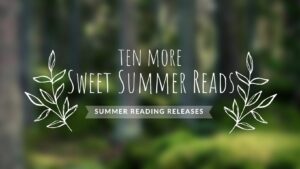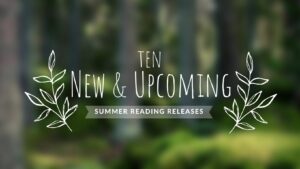Growing up, I was taught to be kind to people and respect them.
While the world at large seems to be locked in a “two steps forward, one step backwards” mentality when it comes to equality, I’d like to be part of the movement that takes the South forward into a new era. One that embraces a spirit of hospitality, not just to visitors, but to every member of our state. That recognizes that petty insults aimed at someone’s race and background do real harm. The first place that I can take that step forward as a writer is to be more conscious of the words I use.
While my first novel, The Gravedigger’s Guild, wasn’t written with diversity specifically in mind, I did want to write in such a way that diverse readers would be as comfortable as possible in its setting.
As a white woman, I’ve lived in a society that benefits me even in my speech. The fact that I’ve been able to use these terms, terms that I am sure have hurt or triggered others, without being called out or corrected, is telling.
As I typed these phrases into The Gravedigger’s Guild, and later edited them out, it took me only a little thought and effort to verify their origin and remove them. Then I was able to move forward in a more conscious, kinder way. I hope sharing them and my learning process helps others examine their speech as well- and hopefully begin the same examination.
- kowtow – This phrase has a derogatory Chinese/Asian background that references the low bow performed before the emperor, a sign of respect and submission. In American culture it is has been flippantly used as a way to say that someone is “giving in” or is being obsequious or servile to someone else and it is almost always an insult. Not only does the U.S. have a disgraceful history with how we treated our Japanese-American citizens during WWII, Mississippi has strong cultural ties with Chinese immigrants that I wanted to honor. Naturally, this word was replaced with a more neutral expression.
- whipping – I really shouldn’t even have to explain this word with our history of slavery. Thanks goes to my proofreader, Domenica Pillo, for suggesting that this was not ok. I was referencing the swatting with a hand or wooden spoon many children receive (and is still controversial) in the South, not the barbaric beating of slaves. This word was changed to “whooping” to be clearer and less triggering.
- raccoon – There were several instances where I described people’s eyes as being “raccooned” from running mascara or tired, dark circles. Not only should describing people with animal qualities be handled delicately, but there is a common racial slur in the South that puts this description on the list of ones to avoid. I personally love raccoons, but I’d rather err on the side of caution than inadvertently hurt someone, so I changed all except one description. This occurred within the story of a childhood black eye that I thought was sufficiently clear to avoid misunderstanding or create an inadvertent reference.
This list is short, tiny really. And I’m sure that as I write and learn more, I will come back to it and update it. In the meantime, are there words that you have learned to watch for?


